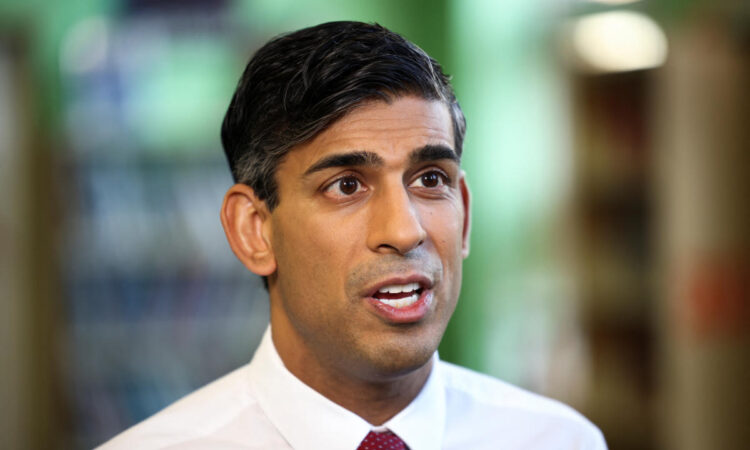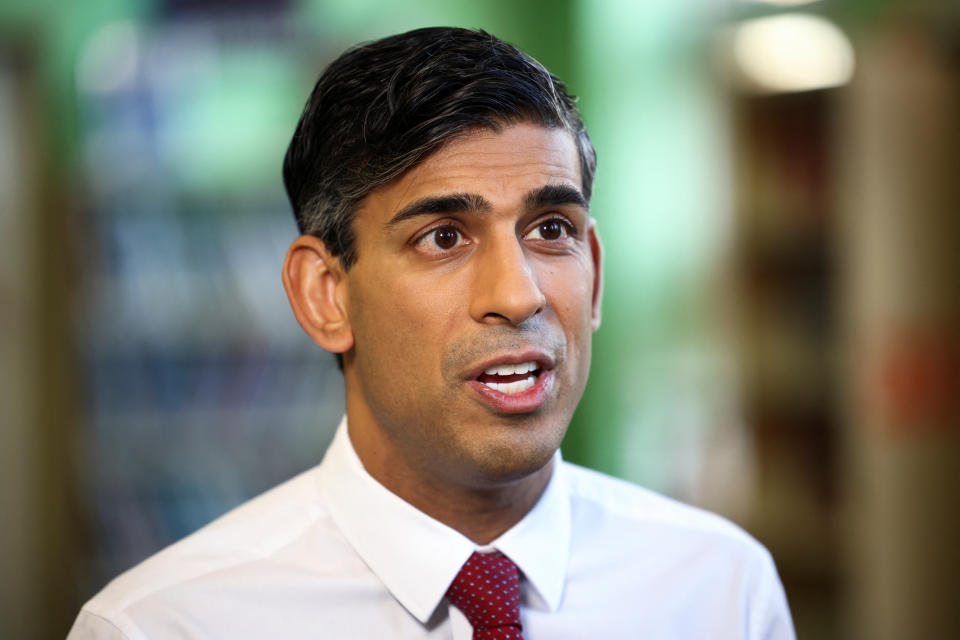

The UK is still committed to becoming a global crypto hub despite the reputational damage that the industry took after the collapse of the FTX exchange.
On Tuesday, MPs and financial experts weighed up the potential benefits and risks for UK businesses and consumers of allowing the crypto asset industry to flourish in the UK.
Conservative MP Andrew Griffith, economic secretary to the Treasury briefed the UK government’s Treasury Committee on the latest crypto-asset developments.
Griffith said the government hoped to embrace the disruptive technology behind crypto assets as bitcoin (BTC-USD), ethereum (ETH-USD) and cardano (ADA-USD).
He added that there was “a very wide range of forecasts in the market that reveal the benefits to the UK economy from embracing crypto assets and its underlying technology, such as distributed ledger technology and blockchain”.
Read more: Crypto live prices
The committee was keen to point out the potential risks of future government policy that might lend credibility to some parts of the crypto-industry, given the events of 2022, including the collapse of cryptocurrency exchange FTX.
Griffith said: “The UK government’s objective is to continue to seek for the UK to be the home of well regulated technologically advanced financial systems, and that there is absolutely room for this new technology within that.”
He added: “Recent events since 2022 have highlighted vulnerabilities and educated people about some of those practices that were taking place by some of the early participants on the sector.
“In the crypto space there is the emergence of a new set of technologies, such as distributed ledger technology, the blockchain itself and I think it is right that all of us should be humbler about our ability to predict long term technologies and outcomes, but it would be wrong for the UK not to be forward leaning in respect to seeking to make the most of new opportunities and making sure that we have a well calibrated regulatory response that protects consumers. But a response that doesn’t seek to impede the safe use of this new technology.”
Griffith said that the UK government wants to establish a regime for crypto assets and stablecoins that fosters growth and innovation.
Read more: FTX bankruptcy sees 80,000 UK crypto investors lose funds
He said: “We want to ensure consumers have the right information by legislating for financial promotions for crypto assets.
“This will give consumers additional protection over and above what is already out there.
“I want to see the establishment of a financial regime to monitor the wholesale use of stablecoins.
“The government will produce a consultation document about the regulation of the crypto asset sector in general and in conjunction with the Bank of England about a sovereign UK central bank digital currency (CBDC).
Griffith would not give a date for the release of the consultation document, but said that it would be “coming soon, in weeks not months”.
Watch: Web3 sectors to watch in 2023 | The Crypto Mile
Evidence at the committee meeting was also provided by Laura Mountford, deputy director of payments and fintech at HM Treasury, and Daniel Rusbridge, deputy director of financial services strategy at HM Treasury.
UK prime minister Rishi Sunak has articulated his eagerness to boost the UK’s standing as a hub for digital assets, distributed ledger technology and cryptocurrencies.
In April 2022, Sunak elaborated on a plan to make the UK “a global crypto asset technology hub”, where alongside former economic secretary to the Treasury John Glen, he laid out a roadmap for the UK’s crypto future.
This included the development of new legislation for a “financial market infrastructure sandbox” that can aid crypto-firms to innovate.
Read more: Grayscale owner’s woes could ‘severely impact’ crypto markets, report claims
As chancellor he oversaw a Financial Conduct Authority-led ‘CryptoSprint’ to further encourage the innovation of distributed ledger technology (DLT) within the UK.
Blockchain technology is a key method for creating the secure distributed ledger technology that is driving innovation in finance, information exchange and “smart” contracts for multiple sectors of the economy.
Sunak oversaw an initiative with the Royal Mint to create an exclusive NFT, plus the formation of an engagement group to work more closely with industry.
Last year, the Royal Mint said: “As part of the chancellor of the exchequer’s ambition to make the UK a global hub for crypto asset technology and investment the Royal Mint has been asked to produce an NFT for Britain, we are delighted to once again lead the way for UK currency.”
Under Sunak’s fiscal management the UK government also confirmed plans to initiate a research programme to explore the feasibility and potential benefits of using DLT for sovereign debt instruments.
Read more: What you need to know about crypto profits and HMRC
This included exploring ways of increasing the competitiveness of the UK tax system to encourage growth in the crypto-asset market in the UK.
Whilst chancellor Sunak highly promoted the “Britcoin” concept — a central bank digital currency (CBDC) project of the Bank of England.
In October 2021, when chairing the G7 Finance Minister Meeting in Washinton DC, Sunak launched a set of public policy principles for retail CBDCs.






